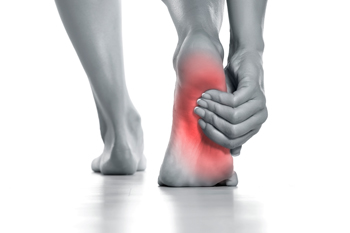Causes of Sharp Foot Pain

Sharp foot pain can stem from various causes, with ill-fitting shoes being a primary factor. Investing in well-fitted footwear is essential. High heels, in particular, exert excessive pressure on the toes, potentially leading to sharp foot pain. Medical conditions that contribute to sharp foot pain, including diabetes, leg deformities, and neurological disorders such as cerebral palsy or Parkinson's disease. Pushing your body beyond its limits through excessive exercise is another underestimated cause of sharp foot pain. Plantar fasciitis, a common source of sharp foot pain, involves inflammation of the tough fibrous tissue, the plantar fascia, resulting in discomfort, especially during the morning and in the bottom and front of the heel. This condition may lead to heel spurs, bony projections that can increase the pain. Seeking immediate attention from a chiropodist when you experience sharp foot pain is important, especially when dealing with conditions like plantar fasciitis and heel spurs. Diagnosis through X-rays and appropriate treatments can help alleviate sharp foot pain and restore mobility. For assistance in dealing with foot pain, it is suggested that you schedule an appointment with a chiropodist.
Foot pain can have many causes. To receive an accurate diagnosis and treatment for your foot pain, please consult with one of the specialists from Thornhill Foot Clinic. Our chiropodists will assess your condition and provide you with quality foot and ankle treatment.
Causes
There are a variety of different conditions that can cause foot pain, including:
Plantar fasciitis
Deformities, such as bunions or hammertoes
Injuries to the muscles, bones, tendons, or ligaments in the feet
Arthritis
Flat feet
Ingrown toenails
Symptoms
The type and location of your foot pain can help determine what may be causing it and what type of treatment options are best for you.
Common types of foot pain include:
Heel pain
Arch pain
Toe pain
Ball of foot pain
Pain that has a stabbing, burning, or tingling quality
Pain that is constant, intermittent, or that gets better or worse depending on the situation
Diagnosis
A thorough medical history and physical examination of your feet will be required to determine a diagnosis. Imaging studies, such as X-rays or MRIs may be performed to rule out or confirm certain diagnoses.
Treatment
Treatment will depend on the cause of the pain. Common treatments for foot pain include resting, icing, compressing, and elevating the affected foot, wearing orthotics, or taking anti-inflammatory medications.
If you have any questions, please feel free to contact our office located in . We offer the newest diagnostic and treatment technologies for all your foot care needs.
